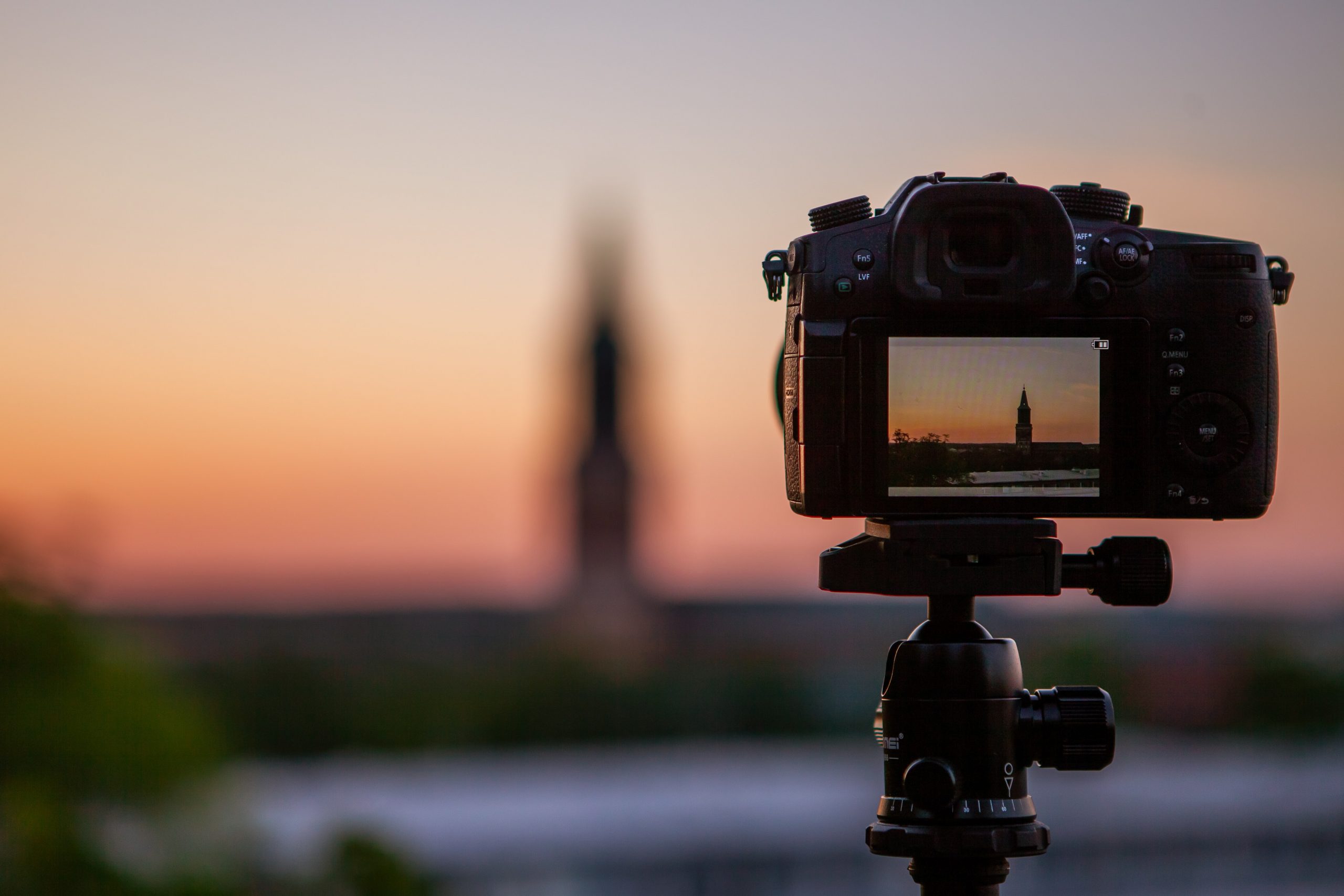The Differences in Crop Sensor Cameras vs Full Frame - Inspiration Photography & Christian Devotions

Looking through which camera to buy next is like walking down the cereal aisle at the grocery store. Brands, functions, lenses, features, etc. it can start to become a little overwhelming! One of these major features is the crop sensor cameras APSC vs full frame. But this doesn’t have to be a sticking point. Neither one of these sensors are the one-size fits all answer to your photography needs, each have their positives and negatives. So let’s dive into the advantages of a full frame camera vs crop and figure out which camera is the best for you.

Basic Differences: Crop Frame vs Full Frame
So, back in the “old days” we used rolls of film that had to be loaded into the back of the camera and then either manually or automatically cranked to go to the next frame. Even better, you bought your roll with a limited number of pictures you could take. Once you took your last frame, you would crank it back into the roll and run down to your nearest photo booth to get your film developed. Now with digital cameras, we simply pop in a memory card and take several hundred pictures, then pop in another memory card if needed.
One thing stayed from those old film antiques, and that is the frame size of the film. Electronic sensors and pixels have now replaced the old rolls of film, but the frame size of the film remained. So now, instead of exposing a frame of film that is 36mm long and 24mm tall, a full frame camera is simply a sensor that is the same size. When the shutter opens, the light hits the sensor and is processed instead of just burning an impression on film.
Don’t worry too much about the numbers because we are going to cover the pros and cons of smaller vs. APS-C. But just for those technical nuts who like numbers, when we say “full-frame” you are talking about a sensor that is 36mm wide and 24mm tall. A crop sensor is simply a smaller sensor than a full-frame. The standard APS-C is 1.5x or 23.7mm X 15.6mm, Canon’s APS-C is the exception at 1.6x or 22.2 X 14.8mm. There are also a group of popular crop sensors called 4/3s which are even smaller, 2.0x or 17.3mm X 13mm. Even smaller would be a camera phone which is probably cropped by 7.61 so it’s something crazy small like 4.5mm x 3.4mm.
Now that you get the idea that crop literally means cropping the image frame, let me show you an illustration of how this looks inside your camera.
Advantage: Magnification Effect

The picture above is an example of an uncropped image taken with a full frame camera. The picture below, shows a full “frame” displayed in green. So, if you had a full frame camera this is what you would see through your viewfinder. Given that everything is equal with a crop sensor camera, the red frame is an example of what you may see. The main take away is that from the same distance with the same lens, the crop sensor’s much smaller sensor is capturing less of the environment.

But, that isn’t always a bad thing! There are professional grade crop sensor cameras for a reason. The picture below shows what you would see through the viewfinder of a crop sensor camera, notice anything different? It almost looks like it zoomed in further doesn’t it? The truth is, it is not any closer than the full-frame camera. But to get this same “zoomed” image, from the full-frame, you would have to crop your image when editing which reduces the resolution.

If your full frame camera is 60 megapixels then crop away, but most of us are using 20-30 megapixels. So, if your intent was to only frame the couple on the park bench, the crop sensor could do it with the same lens at that distance without the need to crop. Our other option is a longer lens for your full frame camera… but of course that starts getting expensive! Remember, the more you crop, the less resolution you will retain. So, an uncropped image with a 20mp crop sensor is going to be higher resolution than a cropped picture from a 20mp full frame.
Who needs this zooming effect from a crop sensor? Tons of photographers! Sports, wildlife, macro, lifestyle, even sometimes portraits and events. Just imagine, when you walk outside with your 500mm lens, if the crop factor is 1.6x (Canon), the frame is going to be like shooting with a 800mm lens!

Advantage: Crop sensors can fit full frame lenses but not the other way around
With a crop sensor camera, you get options on your lenses. You can purchase the much less expensive crop sensor lenses or go with full frame lenses. It really is nice if you are like me and own both sensor sizes. I can have one set of lenses for both cameras and take whichever I need depending on what I am shooting.
Full frame cameras do not work that way. Placing a crop sensor lens on a full frame camera is going to give you a massive black circle around your frame and ruin any benefit you have to using that camera body. So, if you are on a budget and get a crop sensor camera now but may upgrade later, purchase full frame lenses to save you some money down the road!

Advantage: Crop sensor cameras are typically much less expensive
Much, much cheaper. Remember, there are crop sensors with in body image stabilization, multi SD card ports, battery extensions, etc, all the benefits of professional cameras but at a much cheaper price. Why? Smaller sensor, smaller price. It’s like asking why a 70″ TV is more expensive than a 55″ TV. So, if you are a person on a budget or testing the waters to see if photography is for you, a crop sensor is a great way to get into the game without breaking the bank!
Advantage and Disadvantage: Size and weight
Since the most important part of the camera is much smaller in a crop sensor body, obviously it can be placed in a lighter, smaller frame. If you are someone who is often traveling, hiking, or just sightseeing with your camera around your neck, this is a huge advantage. Many individuals like the smaller size because it looks less expensive when in foreign countries. But, I have known several photographers to have to upgrade because their crop sensor camera was just too small to grip. So, if you are a big handed person, you might want to hold the camera before you buy it. Ergonomics are more important than you would think.
Advantage and Disadvantage: Depth of focus- more sharpness from front to back
Crop sensors produce sharper images when comparing uncropped images side-by-side to a full frame with equal megapixels. However, not every photographer wants this effect all the time and there is more flexibility in the full frame cameras. Full frame bodies are going to produce more quality bokeh; therefore, full frame is the obvious choice for studio work.
Disadvantage: Inferior light performance
Smaller sensor means less light, plain and simple. This is one of the major selling points to a full frame camera; they can perform amazingly in low light situations without a flash. You will begin to see graininess much earlier with a crop sensor because it can’t gather as much light. So, if you often shoot at night with little light and no ability to add flash, go full frame.

Disadvantage of Crop sensor cameras: Less wide angle
This is really where full frame cameras shine, wide angle photography. Because of the magnification effect, you will not get the same wide angle view that a full frame provides. If you are a sweeping landscape photographer or enjoy astrophotography, a full frame camera is the obvious choice. As an example, a full frame with a 16mm super side angle lens is great for wide angles. Using that same lens on a Canon crop sensor (1.6x) would be equivalent to a 25.6mm lens (16mm x 1.6=25.6mm). You would have to look at fisheye lenses to get a 16mm equivalent!
That’s a wrap
There it is, your advantages and disadvantages to different sensor sizes. The main things to consider is your budget and genre you are wanting to shoot. Budget will determine which camera you get more than anything. But genre can make the decision a little harder as well. If you are doing a lot of studio work or sweeping landscapes, go full frame. If you shoot sports, macro, or wildlife, give some consideration to a crop sensor camera.
Check our our recent publication Immersion: An Inspirational Christian Photography Collection
Need the basics of Photography? Try our free online course!
Written by Jon Frederick, Lead photographer for Seven11photography.com
I am a conceptual fine arts photographer and author for Seven11. Together with my wife, Kathleen, we pull inspiration from our photography to deliver messages of Christian encouragement to help others in their walk with Jesus. In addition to our writing, we also run a Christian podcast where we put “Christ in Focus.”As a separate mission, I author a photography blog to help new photographers develop their skills, learn tips and tricks, find reliable equipment, and I provide free mentorship. My goal is to prove to new photographers and models that they can pursue their dreams in fine art while staying true to their Christian values.
View all posts by Jon & Kathleen Frederick







